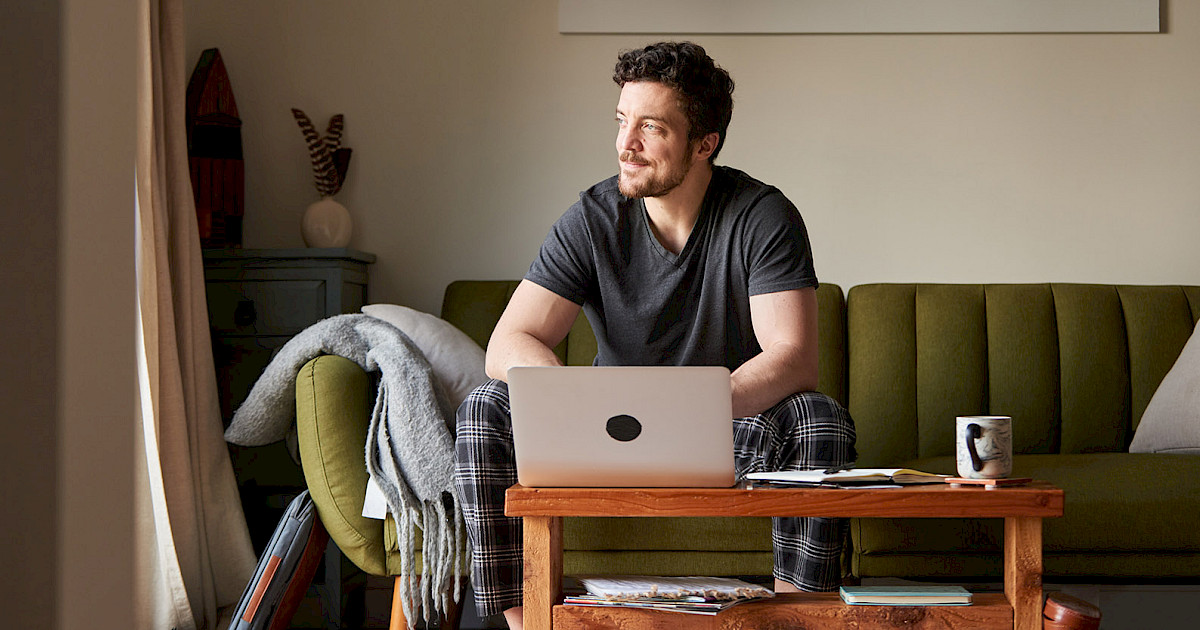Working Remotely? An HR Professional’s Tips for Mental Health
Andreea, a human resources professional working at Spiria, shares 4 essential tips for preserving your mental health when working from home:

<div><p>Don’t get me wrong, I love working from home. I get to wear sweatpants around the house, I start the dishwasher between two meetings, and I drop by my local farmer’s market to grab my produce basket every Friday. With so many dreamy benefits to working remotely, I can’t imagine ever going back to the office daily.</p><p>And yet … despite the comfort and practicality of working from home (WFH), I’ve found that remote work has a negative effect on my already fragile mental health. I let this go on for quite a while, until I decided to address it as I would for an employee coming to me for help: with empathy, some research, and trial-and-error. Here are a few tips and tricks I’ve come across in this process, highlighting the ones that worked best for me.</p><h3>Don’t skip lunch</h3><p><img src="https://cdn.prod.website-files.com/67c06f07cfba9b0adb43e16c/68470836378cc0db150aef4d_image-01.webp" style="width: 100%; border-style:solid; border-width:1px;" alt=" " title=" "></p><p>I know, I KNOW you still get e-mails, messages and urgent requests during lunch, especially if your workplace has a flexible schedule like mine.</p><p>Not everyone gets hungry or eats at the same time, so they might not think to wait until after lunch break to send you that message. In fact, no matter whether you eat earlier or later than the usual lunchtime, PLEASE take some time to walk away from your computer, give your body some nourishment and perhaps move around if you can fit it into your break!</p><p>I can’t say I’m infallible at this, and sometimes I compromise because things get too busy. Well, let me tell you, both my body and my mind talk back if I’ve abused their kindness on days when I don’t take a proper lunch break.</p><p>And no, eating in front of your computer, whether you keep working or not, does not count as a real break. You’re still hunched in the same posture and setting in which you spend your entire workday. I can assure you that eight or nine hours in the same position will feel worse than two 4-hour stints.</p><h3>Work-life boundaries</h3><p><img src="https://cdn.prod.website-files.com/67c06f07cfba9b0adb43e16c/68470839bd0abd8d6ee13336_image-02.webp" style="width: 100%; border-style:solid; border-width:1px;" alt=" " title=" "></p><p>This one’s tricky because different people do better with different patterns.</p><p>You’ve probably heard it said that you should go for a walk, a bike ride or whatever type of transportation you prefer before and after work to <a href="https://www.cnn.com/2021/01/18/success/fake-commute-meaning-benefits-pandemic-wellness/index.html">simulate a commute</a>. This advice helps you prepare for the workday you’re about to tackle, and helps calm you and process the day’s events on your way out.</p><p>Fortunately, this seems to apply to indoor activities as well, such as meditation, yoga, reading, listening to music or spoken-word entertainment … the list goes on!</p><p>Personally, I’ve started the habit of preparing a nice breakfast and cup of coffee for myself, and having a chat with my boyfriend, reading, or journaling, depending on my mood.</p><p>I’ll admit that I still have to work on the afternoon commute “back from work,” but for now I call it a win when I faceplant into bed or the sofa and just rest a few minutes before tackling any chores, hobbies or other personal tasks.</p><h3>Watch out for presenteeism</h3><p><img src="https://cdn.prod.website-files.com/67c06f07cfba9b0adb43e16c/6847083c439a2a19ef290f8d_image-03.webp" style="width: 100%; border-style:solid; border-width:1px;" alt=" " title=" "></p><p>Because I can work in pajamas and occasionally press pause to rest when working from home, I’ve found that I’m much more likely to just *show up* to work even when I’m not feeling well.</p><p>Now, your first thought is probably “Oh great, you don’t have to call in sick as often.” WRONG. Let me introduce you to <a href="https://hbr.org/2004/10/presenteeism-at-work-but-out-of-it"><em>presenteeism</em></a>. This is a concept born from the valiant efforts that companies put forth in the late ’90s and early 2000s to curb absenteeism—reducing employee absence rates. Instead, employees found merit in, and indeed were praised for, “pushing through” their ailments such as cold or flu symptoms, brain fog, mental health struggles, family-related worries, and so on.</p><p>The concept of presenteeism is that you’re <strong>present</strong> but significantly less productive than usual. You know what I mean: you wake up with a migraine but, since you’re home, you decide to “do your best” and (s)log onto your work computer, ready to somehow tackle your tasks. About 45 minutes into it, you snap out of a migraine-induced brain fog, only to realize you’ve been staring at a wall or at the corner of your laptop screen the whole time.</p><p>The lesson here is that though presenteeism might be well regarded at work for some strange reason, not only is it unhealthy, it’s also mostly worthless to your employer and of no help to your workload. If you feel unwell and incapable of working efficiently, call in sick. Of course, this is not to excuse every work impediment, or else your manager might be less likely to trust you next time you need to take a day off.</p><p>In fact, at Spiria, we’re currently conducting a pilot project to allow unlimited time off when employees are sick, struggling with mental health or going through difficult personal situations. We’ve called this project <em>Hours Useful to Get better</em> (AKA HUG—we really love our acronyms, don’t we?). This program aims to offer Spirians even more flexibility and to address presenteeism.</p><p>By now, you might have realized that while the article’s title mentions mental health specifically, the advice offered above touches on all aspects of health. Because to maintain our mental health, we must act holistically. Far from operating in a vacuum, our brain depends on and interacts with our whole body. This brings me to the fourth and final tip:</p><h3>Invest in your health, at home and at work</h3><p><img src="https://cdn.prod.website-files.com/67c06f07cfba9b0adb43e16c/6847083f086a552384a919fa_image-04.webp" style="width: 100%; border-style:solid; border-width:1px;" alt=" " title=" "></p><p>If you work from home, you must make sure that your workstation meets <a href="https://www.bu.edu/articles/2020/10-ergonomics-dos-and-donts-for-those-now-working-from-home/">ergonomic guidelines</a>. Some of us are extremely lucky to have a company allowance to improve our WFH setup. If you don’t, please look up these guidelines and strive for a good posture during the workday.</p><p>Similarly, once work is over, invest in your health by choosing nutritious food, practicing joyful movement, and setting healthy boundaries with family and friends when it comes to your mental health needs. Professional support such as therapy or medical advice can be such a game-changer when it comes to your mental health. When in doubt, I highly recommend you consider either!</p><p>Here’s to hoping you learned something or gained inspiration from my little sermon. Go forth and enjoy a healthy and balanced WFH life!</p></div>
Want to Work Together?
Every great project starts with a conversation.


